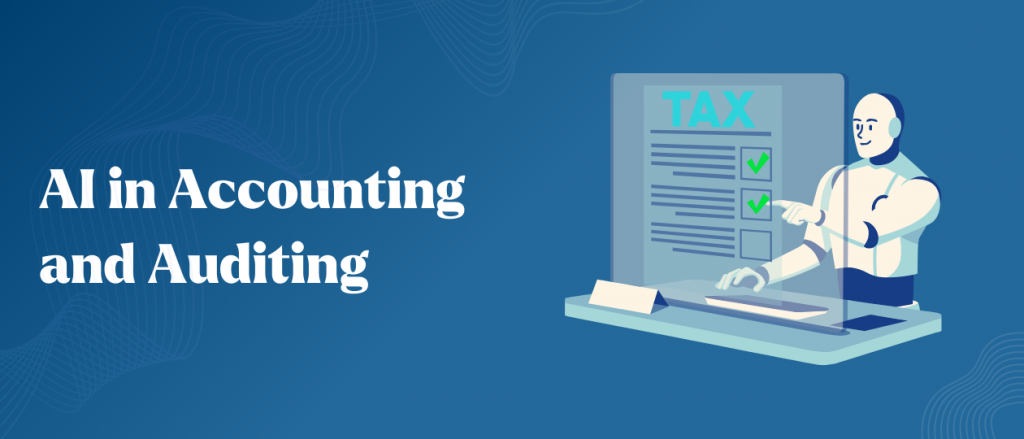
AI in Accounting and Auditing: Tools, Stats, and Trends 2025
Introduction
The adoption of AI in accounting and auditing is growing rapidly, with an estimated 80% of accounting tasks expected to be automated by 2025. As businesses increasingly rely on AI accounting software for bookkeeping, audits, and financial analysis, the industry is undergoing a major transformation. In this blog, we will explore the latest tools, stats, and trends shaping the future of AI in accounting and auditing in 2025.
The Role of AI in Accounting and Auditing
AI is revolutionizing the way accountants and auditors work by automating repetitive tasks, improving accuracy, and enhancing financial insights. Some key roles AI plays in accounting include:
- Automated Bookkeeping – AI-driven tools proficiently categorize transactions, seamlessly reconcile accounts, and effortlessly generate insightful financial statements.
- Fraud Detection – Machine learning models expertly analyze intricate patterns to uncover anomalies, empowering businesses to detect and prevent fraudulent activities with remarkable precision.
- Tax Preparation and Compliance – AI empowers businesses to effortlessly remain compliant by meticulously scanning tax regulations and automating the complexities of filings.
- Audit Process Enhancement – Harnessing the power of AI-driven audit software elevates your auditing process by seamlessly identifying inconsistencies and automating risk assessments. This innovative solution empowers organizations to streamline their operations while enhancing accuracy and efficiency, transforming the way audits are conducted.
- Financial Forecasting – AI empowers businesses by forecasting cash flow trends, enabling them to make informed, data-driven decisions with confidence and precision.
AI Accounting Tools in 2025
Several AI accounting software solutions are leading the market in 2025, helping businesses streamline financial operations:
- Xero AI – Automates invoice processing and provides real-time financial insights.
- QuickBooks AI – Uses machine learning to categorize transactions and suggest tax deductions.
- Botkeeper – A fully automated bookkeeping service powered by AI.
- Sage AI – Helps with predictive analytics and compliance tracking.
- MindBridge AI Auditor – Detects financial anomalies and enhances audit accuracy.
Key Statistics on AI in Accounting
- 80% of accounting tasks are expected to be automated by 2025.
- AI-powered audits are 40% faster than traditional audits.
- 90% of accountants believe AI will enhance efficiency and accuracy.
- AI-driven fraud detection reduces financial losses by up to 50%.
Trends Influencing AI in Accounting and Auditing
1. AI-Powered Auditing
AI is making audits more efficient by analyzing large datasets quickly, detecting errors, and identifying fraud patterns.
2. AI and Blockchain Integration
Combining AI with blockchain ensures transparent and tamper-proof financial records, reducing fraud risks.
3. AI-Driven Predictive Analytics
Predictive analytics helps businesses anticipate market trends, optimize financial planning, and improve cash flow management.
4. AI for Compliance Automation
Regulatory compliance is becoming easier with AI-driven tools that track changes in tax laws and accounting standards.
5. AI as a Financial Advisor
Virtual AI assistants are providing real-time financial insights, guiding businesses on cost savings and investment opportunities.
Will AI Replace Accountants?
While AI is revolutionizing numerous accounting tasks, it is unlikely to fully usurp the role of accountants. Rather, it will function as a formidable ally, empowering accountants to dedicate their expertise to strategic planning, financial consulting, and fostering business growth.
Conclusion
The future of AI in accounting and auditing is promising, with advanced tools improving efficiency, accuracy, and fraud prevention. While AI won’t replace accountants entirely, it will redefine their roles, allowing them to focus on strategic financial planning. As AI continues to evolve, businesses must adapt to these technological advancements to stay competitive in the accounting industry.
Capsna
CAPSNA has proved to be a one-stop advisory solution to business entities in the domains of business planning, business incorporation, financial structuring, transaction structuring, statutory compliances, accounting & book-keeping, and other legal advisory services.
FAQs:
1. What are some examples of artificial intelligence in accounting?
AI is used in automated bookkeeping, fraud detection, audit analytics, and financial forecasting.
2. Will AI replace accountants?
AI will enhance accountants’ productivity, but human expertise will still be required for decision-making and financial strategy.
3. How does AI help in fraud detection?
AI analyzes transaction patterns and identifies anomalies, helping detect fraudulent activities before they cause major losses.
4. What is the best AI accounting software in 2025?
Some top AI accounting software include QuickBooks AI, Xero AI, Botkeeper, and Sage AI.
5. How can AI improve the auditing process?
AI enhances auditing by analyzing large datasets, detecting errors, and automating risk assessments, making audits faster and more accurate.